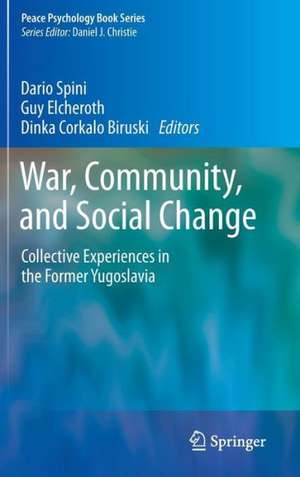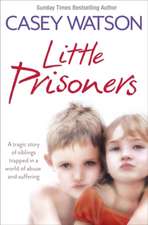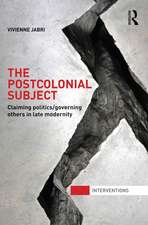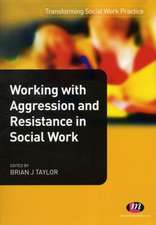War, Community, and Social Change: Collective Experiences in the Former Yugoslavia: Peace Psychology Book Series, cartea 17
Editat de Dario Spini, Guy Elcheroth, Dinka Corkalo Biruskien Limba Engleză Hardback – 7 aug 2013
| Toate formatele și edițiile | Preț | Express |
|---|---|---|
| Paperback (1) | 638.43 lei 6-8 săpt. | |
| Springer – 26 aug 2015 | 638.43 lei 6-8 săpt. | |
| Hardback (1) | 642.51 lei 6-8 săpt. | |
| Springer – 7 aug 2013 | 642.51 lei 6-8 săpt. |
Din seria Peace Psychology Book Series
- 18%
 Preț: 779.26 lei
Preț: 779.26 lei -
 Preț: 361.05 lei
Preț: 361.05 lei - 15%
 Preț: 639.25 lei
Preț: 639.25 lei - 18%
 Preț: 788.54 lei
Preț: 788.54 lei - 15%
 Preț: 699.28 lei
Preț: 699.28 lei - 15%
 Preț: 646.62 lei
Preț: 646.62 lei - 18%
 Preț: 1690.13 lei
Preț: 1690.13 lei - 15%
 Preț: 645.28 lei
Preț: 645.28 lei - 24%
 Preț: 1044.84 lei
Preț: 1044.84 lei - 18%
 Preț: 945.14 lei
Preț: 945.14 lei - 15%
 Preț: 649.54 lei
Preț: 649.54 lei -
 Preț: 386.39 lei
Preț: 386.39 lei - 15%
 Preț: 697.82 lei
Preț: 697.82 lei - 15%
 Preț: 591.14 lei
Preț: 591.14 lei - 18%
 Preț: 1222.94 lei
Preț: 1222.94 lei - 15%
 Preț: 644.82 lei
Preț: 644.82 lei - 15%
 Preț: 649.22 lei
Preț: 649.22 lei - 15%
 Preț: 697.65 lei
Preț: 697.65 lei -
 Preț: 388.72 lei
Preț: 388.72 lei - 15%
 Preț: 647.08 lei
Preț: 647.08 lei - 24%
 Preț: 967.02 lei
Preț: 967.02 lei - 15%
 Preț: 638.89 lei
Preț: 638.89 lei - 15%
 Preț: 650.37 lei
Preț: 650.37 lei - 18%
 Preț: 733.15 lei
Preț: 733.15 lei -
 Preț: 398.74 lei
Preț: 398.74 lei - 15%
 Preț: 644.30 lei
Preț: 644.30 lei - 18%
 Preț: 1116.57 lei
Preț: 1116.57 lei -
 Preț: 365.05 lei
Preț: 365.05 lei - 15%
 Preț: 643.99 lei
Preț: 643.99 lei - 18%
 Preț: 1116.26 lei
Preț: 1116.26 lei - 18%
 Preț: 1381.26 lei
Preț: 1381.26 lei - 18%
 Preț: 1595.75 lei
Preț: 1595.75 lei - 18%
 Preț: 779.89 lei
Preț: 779.89 lei
Preț: 642.51 lei
Preț vechi: 755.88 lei
-15% Nou
Puncte Express: 964
Preț estimativ în valută:
122.95€ • 128.69$ • 102.33£
122.95€ • 128.69$ • 102.33£
Carte tipărită la comandă
Livrare economică 31 martie-14 aprilie
Preluare comenzi: 021 569.72.76
Specificații
ISBN-13: 9781461474906
ISBN-10: 1461474906
Pagini: 256
Ilustrații: XII, 241 p.
Dimensiuni: 155 x 235 x 18 mm
Greutate: 0.48 kg
Ediția:2014
Editura: Springer
Colecția Springer
Seria Peace Psychology Book Series
Locul publicării:New York, NY, United States
ISBN-10: 1461474906
Pagini: 256
Ilustrații: XII, 241 p.
Dimensiuni: 155 x 235 x 18 mm
Greutate: 0.48 kg
Ediția:2014
Editura: Springer
Colecția Springer
Seria Peace Psychology Book Series
Locul publicării:New York, NY, United States
Public țintă
ResearchCuprins
Collective experiences in the former Yugoslavia:a societal psychology approach.- Collective experiences and collective memories: writing the history of crisis, wars, and the ‘balkanisation of Yugoslavia’.- Ethnic intolerance, a product rather than a cause of war: Revisiting the state of the art.- The demise of mixed marriage? A cross-generational outlook on ethnic boundaries between families.- The destruction of multiethnic locations: Markers of identity and the determinants of residential trajectories.- Compliance and resistance to the logic of ethnic conflict during the siege of Sarajevo.- Beyond ethnic intolerance: traces and benefits of ethnic diversity in post-war Bosnia-Herzegovina.- From collective victimhood to social reconstruction: Outlining a conceptual framework.- Declared enemies: Personal and social logics of collective guilt assignment.- When nobody stood up and everybody is guilty: a puzzle of individual responsibility and collective guilt.- Threatened powers: When blaming “the others” grows out of internal instability and protest.- Shattered beliefs: How to cope when the world is not a just place .- Beyond collective denial: Public reactions to human rights violations and the struggle over the moral continuity of communities.- War and community: What have we learned about their inter-relations?.
Textul de pe ultima copertă
War, Community, and Social Change documents and analyses how social representations and practices are shaped by collective violence in a context of ethnic discourse. What are the effects of political violence, and what are the effects of collectively experienced victimization on societal norms, attitudes, and collective beliefs? This volume stresses that mass violence has a de- and re-structuring role for manifold psychosocial processes. The interdisciplinary approach draws attention to how most people in the former Yugoslavia had to endure and cope with war and dramatic societal changes, but also how they faced and resisted ethnic rivalry, violence, and segregation. It is a departure from the belief that depicts most people in the former Yugoslavia as either blind followers of ethnic war entrepreneurs or as extremists intrinsically motivated for violence by deep-rooted intra-ethnic loyalties and inter-ethnic animosities.
Caracteristici
Contains 'voices' section that are primary source accounts of the war in the former Yugoslavia Provides diverse research perspectives on the effects of collective violence on communities Explores interdisciplinary approaches to helping communities deal with the aftermath of war and trauma Includes supplementary material: sn.pub/extras












